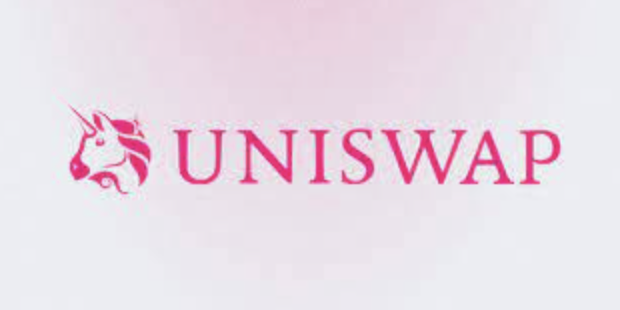The impact of Blockchain on business models and interactions in the marketplace
Katya Malinova
DeGroote School of Business
McMaster University
Future Perspectives of Blockchains
Lucerne, April 18, 2024
Preliminaries & Some Motivation
Business as usual?

Finance is very "expensive"
Why worry about the distant future?
Nokia's market shares for devices:
- 2007: 49.4%
- 2012: 3%


What happened and can it happen to banks?
Let's look at some former industry leaders
Paid-for vs. valued
- Keyboard
- Security
- Being businessy
- Cool and cutting edge
- Being Canadian
- Independence from desk
What did they pay for?
What do people value?

- Mobile email
- Brand name
- Easy access to branch
- Great product range
- Fair prices
- Great advice
- Latest tech
- Friendly tellers
- Safe-keeping of assets
- payments services
If banks move all data into "the cloud," why do we need banks?
Example: Blackberry and a generic consumer bank
Major Lesson: Platforms provide value




What replaced Blackberry? The App-Phone - a PLATFORM
Financial Infrastructure

payments
stocks, bonds, and options
swaps, CDS, MBS, CDOs
insurance contracts
What our financial infrastructure looks like

payments
stocks, bonds, and options
swaps, CDS, MBS, CDOs
insurance contracts
\(\Rightarrow\) a single resource
- easy value management
- straightforward transfers & ownership accounting
- new types of contracts and usage of assets
- \(\ldots\)
What would the most efficient financial infrastructure look like?
Is this a distant future?



Option 1: centralized solution/private platform such as WeChatPay
\(\Rightarrow\) a single common resource
- easy value management
- straightforward transfers & ownership accounting
- new types of contracts and usage of assets
- \(\ldots\)



Counterpoint: Blockchain = common but decentralized resource
Who will provide the next gen banking platform?

Siloed banks
Cloud computing and cloud storage
Open banking and open data
The past (and the present?)
The present and near future
3-5 years in the future
5-10 years in the future
Platforms?
Banks?
Tech firms?
- Each bank has a separate data center
- high costs
- no scaling
- little network externalities
- AWS etc
- Use specialized IT providers
- Network with external providers (FinTechs)
- Share data with external parties at customer request
- Platforms will emerge
- Customers can switch at the drop of a hat
- How will basic banking work?
- Who will run the platform and how will you survive on a platform?
- What will a platform work in financial services look like?
- What roles will current banks play?
- How will a bank earn money in a platform world and with which services?
Past, Present, and Future: Who will provide the next gen of banking?
The Business of Trading in a Decentralized World
Trading Infrastructure
payments network
Stock Exchange
Clearing House
custodian
custodian
beneficial ownership record
seller
buyer
Broker
Broker










Illustration of infrastructure fragmentation by example: equity trading
Text













Application: decentralized trading with automated market makers (AMM)
- Liquidity providers share the risks
- Pricing function ("exchange rate") hard-coded, based on the contract token balance
Liquidity providers
Liquidity demander
Liquidity Pool



\(\to\) simply connect with MetaMask (or similar wallet)
How does this look in practice?
What does it take to make this work in practice?
average annual saving: $2.4 million

Source: "Learning from DeFi: Would Automated Market Makers Improve Equity Trading?" working paper, Malinova & Park 2023
Possible transaction cost savings if AMM applied to equity trading: \(\approx\) 30%
Source of savings:
- better risk sharing among liquidity providers
- better use of capital

UniSwap Lab supports development

a website app accesses the code

token holders control contact features
don't own the code
operation = decentral
control = decentral
anyone can use the baseline code



core code runs on the blockchain

tokens used as rewards
Blockchain-based Businesses?
- Self-custody of assets
- Open-access financial infrastructure
- Value management layer = common resource
- Platform approach to commerce
What makes blockchain-based finance different from TradFi?
liquidity \(\nearrow\)
volume \(\nearrow\)
protocol fees \(\nearrow\)
token value \(\nearrow\)
Platform economics is tricky:
- What's the product?
- How do you get it started?
- How do you get people to contribute?
- How do you earn money?
Business Challenges
- protocol tokens to provide incentives?
- which side to incentivize?
- where does token value come from? (no intermediation rents)
Additional common infrastructure challenges?
- very mobile liquidity!
What value do these tokens have?
- Functionality:
- fee levels for AMMs
- decision to deploy on other chains
- key threshold values for lending
- Monetary value
- implicit claims on "protocol" income
- implicit claim on reserve pools

Economics of financing instruments
- In a perfect world (benchmark based on ~1920s economics):
- Can separate ownership and control
- and achieve social optimum
- = manager acts in shareholders interests and does all valuable projects
- Can separate ownership and control
- In a perfect world (benchmark based on ~1960s economics):
- Debt and equity financing lead to the same firm value
- [Note: RoE \(\nearrow\) in debt]
- In an imperfect world (focus since 1980s):
- various forms of financing can dominate
- optimal contracts (to entice management) can be complex
- The problem in practice:
- financial instruments in public markets are very limited
- common stock
- preferred shares
- bonds & commercial paper
- warrants and debentures
- Private markets are more "diverse" (royalties, convertibles, options)
- financial instruments in public markets are very limited
- Tokens:
- attempt to create different incentives
- \(\to\) closer to constrained optimality?
- achieve objectives beyond financing
Lots of academic research on tokens!
-
Tokens as financing tools:
-
tokens as revenue claims lead to under-investment relative to equity
-
token retention by the entrepreneur as a tool to signal quality
-
developer incentives for continuous development
-
importance of future monetary policy
-
Chod and Lyandres (2021), Gan, Tsoukalas, and Netessine (2021a), Davydiuk, Gupta, and Rosen (2023), Canidio (2018), Catalini and Gans (2018)
- Malinova and Park (2023):
- poorly designed tokens lead to under- or over-investment but optimally designed token is superior to equity re: moral hazard problems
-
Lots of academic research on tokens!
-
Tokens for platforms:
-
network effects, overcome coordination failures, accelerate adoption
-
transfer of governance rights from platform to users
-
speculators early on, users later
-
pre-sale allows for more surplus extraction for the entrepreneur, more projects to be financed
-
-
Li and Mann (2018), Bakos and Halaburda (2019), Sockin and Xiong (2023), Cong, Li, and Wang (2021) and Cong, Li, and Wang (2022) (asset-pricing based), Prat, Danos, and Marcassa (2023), Chod, Trichakis, and Yang (2022), Shakhnov and Zaccaria (2021),
Lee and Parlour (2022), Goldstein, Gupta, and Sverchkov (2022).
Tokens: summing up
- Lots of things to like about tokens
- Don't neatly fit into known financial instrument classes/compliance frameworks
- token can have many purposes/functionalities - which one reigns supreme?
- Take ETH
- payment = money?
- staking = income generating?
- (when) are they securities/investment contracts?
- Take ETH
-
-
evolving use: when do they stop being investment contracts?
-
-
Finance-related disclosures \(\to\) may not ask the right questions
- Easy to re-use capital \(\to\) system-wide leverage concerns
- Side note: protocols seek other income sources & additional functions (UniSwapX order routing?)
Bringing TradFi to DeFi:
Asset Tokenization or
"The Creation of Asset-Linked Tokens"
Tokenization of stocks is nothing new: American Depository Receipts


foreign investor/
issuer
domestic bank with foreign representation
ADR issuing bank handles
- shareholder communications
- dividend payments
- other recording-keeping
Is this a workable model for blockchain- tokenization of existing assets?
foreign representation of domestic bank/ its custodian
domestic depository bank

S.E.C.
registration with form F-4
domestic broker
issues and cancels ADRs


domestic investor
lets investors own and trade ADRs
domestic
market

deposits shares
detailed review: Malinova and Park (2023) "Tokenized Stocks for Trading and Capital Raising" available on SSRN https://papers.ssrn.com/abstract=4365241
Blockchain Tokenization has many options
existing investor/
issuer
token issuance platform
investor
wallet
instruct to create tokens


deposits shares
custodian bank
deposits shares

creates tokens and sells to investors

centralized or decentralized
market

S.E.C.
registration
Use Case #1 for Tokenized Assets: Stablecoins
What do central bankers think about stablecoins?

BIS Survey of Central Banks (2021):
Advanced economies:
80%+: high potential or some potential for single-currency backed




Source: On-chain Foreign Exchange and Cross-border Payments by Austin Adams, Mary-Catherine Lader, Gordon Liao, David Puth, Xin Wan (2023) [team from UniSwap Labs]
DeFi fees:
- fiat to crypto on ramp: 0%-1%
- exchange fees 1-5bps
- network fee: $0.001-5$
- off-ramp fee: 0%-1%
- total: from close to 0 to 2%+$5
Further Thoughts
- developments under the radar:
- China Telecom has developed a SIM card/secure device storage blockchain wallet that will be included by default
- PRC announced using blockchain for its Belt-and-Road initiative => new financial world is coming to other parts of the world
The Development is Ongoing
- although the S.E.C. and some U.S. politicians want it to, blockchain will not get "uninvented"
- tokenization will happen and is happening (tokenized deposits, stocks, bonds, etc)
- sidechains and rollups (e.g. Coinbase's Base) \(\to\) significant business opportunity
- privacy tools are coming (e.g. Railgun)
@katyamalinova
malinovk@mcmaster.ca

slides.com/kmalinova
https://sites.google.com/site/katyamalinova/